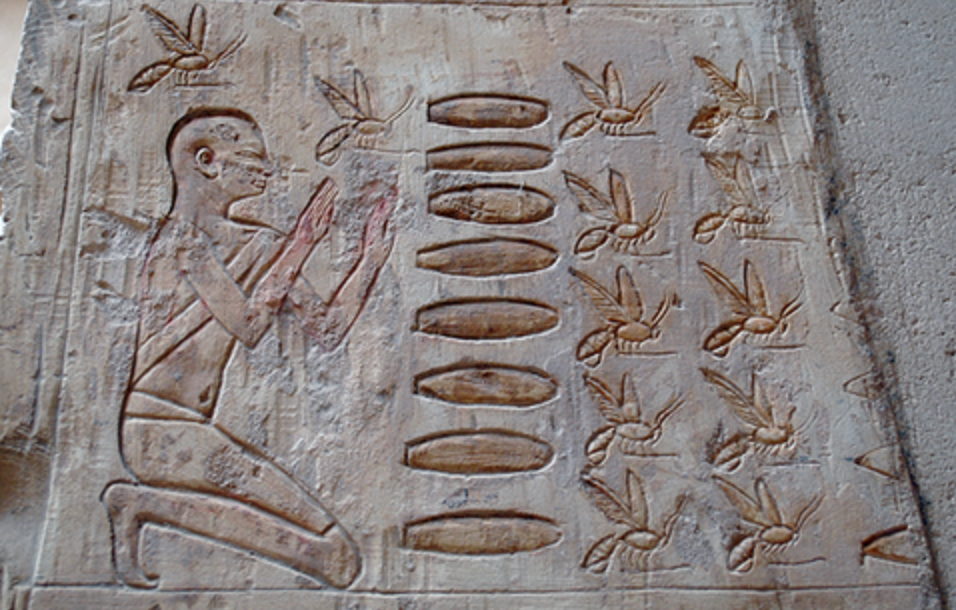
Sponsored by: The American Research Center in Egypt (ARCE), Pennsylvania Chapter (ARCE-PA)

In-person lecture
Saturday, December 14, 3:30 pm EST
Penn Museum, Classroom 2
A holiday party will follow the lecture
Speaker: Dr. Shelby Justl
Title: Researching in the arc-“hives”: Ancient Egyptian honey and beekeeping
Abstract:
With no sugarcane until 710 AD, honey was the major sweetener for ancient Egyptian food and wines, an important ingredient in medicine, and a valuable tribute commodity. Illustrations of apiculture are surprisingly rare and a lack of representation may indicate honey was a royal prerogative at least in the Old and Middle Kingdoms. However, honey production appears to be a more expansive industry from the New Kingdom onwards.
This talk assesses the extent of royal and temple control over beekeeping from the New Kingdom to the Ptolemaic Period through beekeeping titles, New Kingdom letters, the Wilbour Papyrus, Abydos Stela of Sheshonq, and Zenon archives. Location and size of beekeepers’ land-holdings and hives, productivity levels, and evidence of honey grading, transport, and the taxation of beekeepers may suggest honey production as a larger scale industry than previously thought. A snapshot of the archaeological site of Abydos and excavated honey pots may also indicate the extent of state level production facilities and the industrial scale of honey gathering, storage, and use.
Speaker Bio:
Dr. Shelby Justl is a lecturer in the Critical Writing Program here at UPenn. Her courses focus on archaeology and the ancient Egyptian world including such topics as Egyptomania, pseudo-archaeology, and world mythology. She has a PhD in NELC from UPenn and a MA with distinction in Egyptology from the University of Liverpool. After researching and publishing an ostracon from Penn excavations in Abydos that discussed trade of semiprecious stones, her PhD dissertation concentrated on the administration and control of the ancient Egyptian semiprecious stone industry; in acquisition, quarrying, processing, and distribution. She is currently editing this to be published as a book. Dr. Justl also is deeply interested in another “luxury” product for the ancient Egyptians, honey! Still in the research stages, she intends to publish a book on Egyptian honey, beekeeping, and the administration/operation of the industry.
******************
Lectures are FREE to ARCE Members, $7 for University of Pennsylvania Museum Members and UPenn Staff and Faculty, $5 for Students with ID, and $10 for the general public.
Light refreshments served starting at 3pm.
******************
The American Research Center in Egypt (ARCE) is a private, nonprofit organization founded in 1948 by a consortium of educational and cultural institutions to support research on all aspects of Egyptian history and culture, foster broader knowledge among the general public, and strengthen American-Egyptian cultural ties. The ARCE Pennsylvania Chapter (ARCE-PA) is the local branch of the national institution. We host monthly events including scholarly lectures, Egyptian-themed workshops, social events, and guided tours of the Penn Museum’s Egyptian galleries. For more information or to learn about the perks of membership, please send an e-mail to info@arce-pa.org, or visit our website at www.arce-pa.org.